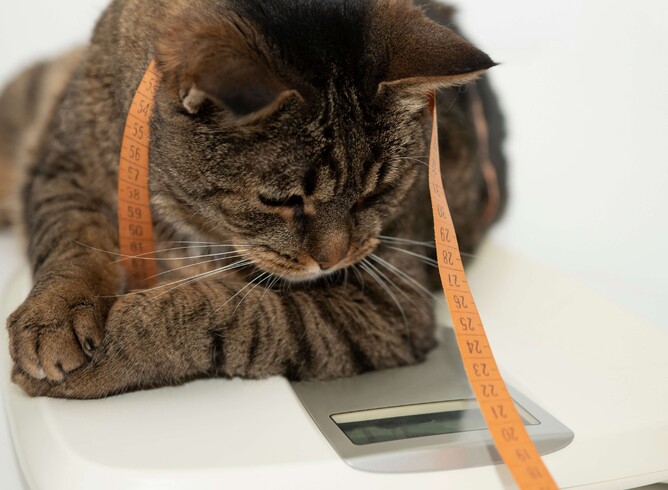A trend of increasing numbers of obese cats has been seen worldwide, and New Zealand is no exception, with one in four cats here classified as overweight or obese.
This extra weight has an impact on our feline friends’ health and quality of life. Many health concerns are linked to obesity, for instance arthritis and diabetes.
It is common for owners not to recognise when their pet is overweight, or the health implications of being “cuddly.” This is backed up by research that suggests many owners misunderstand the ideal weight and condition for their cat.
We all want our pets to live a happy and healthy life, and to do this they need to be a healthy weight. As owners, we often want to provide a varied diet, but this can make calorie control difficult which, in turn, leads to the likelihood of a gradual increase in weight over time.
Things that we can do as cat owners are:
Seek advice from your veterinarian about your cat’s body condition and what their ideal weight should be.
Choose a diet that is consistent and has the correct balance of nutrition and calories for their needs. This will change as they get older, or their lifestyle changes.
Do not be too generous with treats, remember they are just that - treats.
Encourage your cat to get active with play – cat toys or a laser pointer can really help enrich their lives as well as burn calories.

